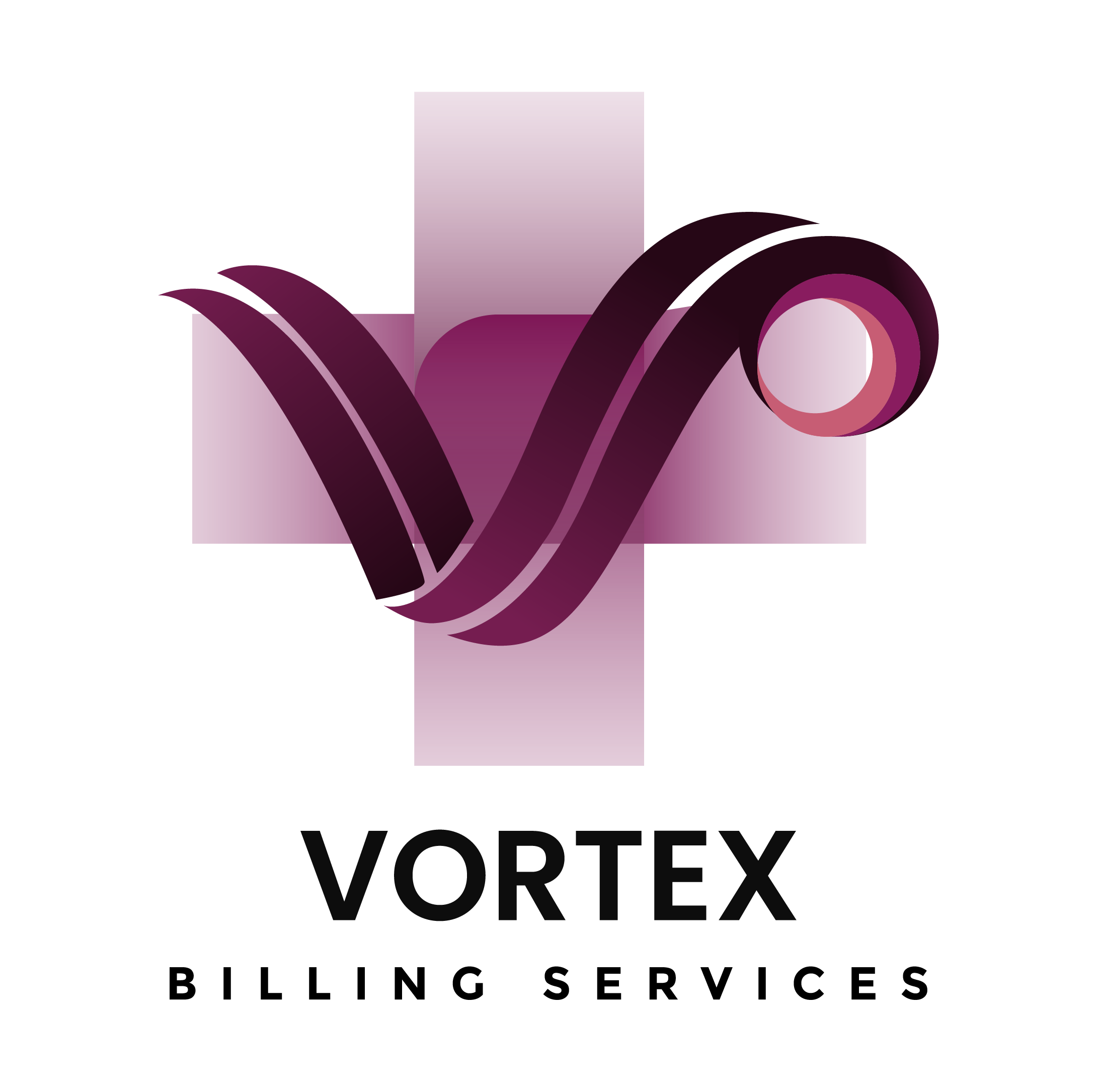How Optimized Billing Services Prevent Prior Authorization Denials
When it comes to billing services in the USA, prior authorization is one of the most important—but often frustrating—components of revenue cycle management (RCM). It’s a required checkpoint before a healthcare provider can move forward with delivering certain procedures or medications. Done right, it keeps the revenue flow smooth, claims approved, and patients satisfied. But done poorly? It can delay care, increase denials, and hurt your bottom line. In this blog, we’ll break down exactly what role prior authorization plays in RCM and how optimized billing services can transform this process for medical practices, clinics, and healthcare systems alike.
Understanding the Concept of Prior Authorization
What Is Prior Authorization in Healthcare?
Prior authorization, also referred to as pre-certification or pre-approval, is a formal approval process mandated by insurance companies before a provider can perform certain services. The goal is to verify that the proposed treatment is medically necessary and falls under the patient’s coverage. It’s essentially the insurer saying, “Yes, we’ll pay for this—but only if we give it a green light first.”
This process can apply to various medical services like MRIs, surgeries, medications, and even some office visits, depending on the insurer’s policy. Providers must submit patient information, clinical notes, and other documentation for review. Once approved, they can proceed with delivering care.
Why It’s Essential for Medical Billing Services
Here’s where billing services come in. Without a solid prior authorization process, practices risk claim denials, delayed payments, and even compliance violations. High-performing billing services understand that authorization is the foundation of clean claims. They ensure documentation is accurate, up-to-date, and submitted promptly, reducing the likelihood of denials.
For practices navigating complex payer rules and high patient volumes, partnering with a tech-savvy billing team that knows the ins and outs of pre-approvals can be the difference between a thriving practice and a struggling one.
The Connection Between Prior Authorization and Revenue Cycle Management
How Prior Authorization Affects Cash Flow
Think of the revenue cycle as a pipeline. Prior authorization is the valve at the start—if it’s stuck, nothing flows smoothly. Without timely authorization, you’re not just risking denied claims—you’re delaying the start of care. That’s bad for patients and worse for your bottom line.
Revenue cycle management hinges on timely and clean billing. The longer it takes to get approval, the longer it takes to treat the patient, submit the claim, and receive payment. That’s why effective billing services treat prior authorization as a critical component of the revenue cycle—not an administrative afterthought.
In a streamlined process, the time between patient visit and reimbursement shrinks. That leads to predictable revenue, reduced days in A/R (Accounts Receivable), and a healthier financial picture overall.
The Importance of Timing and Accuracy
Insurance companies aren’t lenient about errors or delays. Submitting incomplete or incorrect information can lead to instant denials. Worse, some services might be rendered before the denial comes through, meaning the provider might not get paid at all.
Accurate and timely submissions require well-trained staff and often software integrations that track payer rules, submit documents electronically, and send alerts if anything’s missing. This is where technology-powered billing services shine. With AI-driven workflows, they reduce human error and ensure each submission meets insurer requirements—down to the last checkbox.
Billing Services and Their Role in Managing Prior Authorizations
Streamlining Prior Authorization Processes
Medical billing services are no longer just about coding and sending claims. They’re evolving into full-service partners who handle everything from eligibility checks to prior authorizations. And that’s a game-changer.
A good billing partner acts as an extension of your in-house team, proactively managing the entire authorization lifecycle. That includes:
- Tracking payer rules and updates.
- Submitting documentation.
- Following up on pending authorizations.
- Communicating approval or denial status to both providers and patients.
This hands-on support can prevent treatment delays and make the patient journey more seamless—two benefits that modern patients expect from their healthcare providers.
Reducing Administrative Burden for Providers
For small and mid-sized practices, managing prior authorizations in-house can be overwhelming. Staff often juggle multiple payers with inconsistent guidelines, wasting hours chasing approvals that could’ve been automated or outsourced.
That’s where external billing services come in. By offloading these tasks, providers can focus on clinical care rather than paperwork. The result? Lower stress, higher efficiency, and better outcomes—for both patients and practice revenue.
The Impact of Delayed Authorizations on Billing Services
Denied Claims and Revenue Leakage
Delayed or missed prior authorizations are one of the top causes of claim denials in the healthcare world. When approvals aren’t secured ahead of time, insurers may refuse to pay altogether—even if the service was medically necessary. That’s lost revenue you’ll likely never recover.
These denials create more work for billing teams, who must appeal the claims, gather more documentation, and resubmit. It’s time-consuming, costly, and doesn’t always lead to reimbursement. When this happens repeatedly, it becomes a leak in your revenue pipeline—a leak that could be plugged with a better authorization process.
Compliance Risks and Patient Dissatisfaction
Aside from financial impact, delays also raise compliance and patient satisfaction issues. Some patients may not understand why they can’t get immediate treatment. Others may be upset when billed for a service they thought was covered.
Failure to properly manage authorizations can also result in HIPAA violations if patient data isn’t handled securely or shared incorrectly. Professional billing services are well-versed in compliance standards and protect both practice and patient from regulatory pitfalls.
The Importance of Technology-Driven Billing Solutions
Automating Prior Authorization with AI and RPA
In today’s fast-paced healthcare environment, manual processes simply don’t cut it anymore—especially when dealing with prior authorization. That’s why many billing services in the USA are now embracing automation technologies like Artificial Intelligence (AI) and Robotic Process Automation (RPA) to streamline approvals and enhance accuracy.
AI can sift through massive volumes of payer data and identify patterns in approval requirements, while RPA bots can automatically fill out and submit forms, monitor status updates, and trigger follow-ups without human intervention. This drastically reduces turnaround time from days to hours.
For medical practices and clinics, this means quicker service delivery, fewer denied claims, and better overall patient experience. Plus, automation tools can run 24/7, reducing the need for overtime labor and enhancing cost-efficiency. This isn’t the future—this is happening now, and it’s revolutionizing how practices handle one of the most frustrating parts of the revenue cycle.
Integration with Electronic Health Records (EHRs)
Another major advancement in the realm of tech-driven billing solutions is seamless integration with Electronic Health Records (EHRs). When prior authorization tools work directly within the EHR system, it eliminates the need for redundant data entry and reduces the chance of missing documentation.
Integrated systems can also flag procedures that require authorization, automatically extract the necessary information, and send requests to the appropriate payer. That’s a game-changer for busy providers who already struggle with burnout and administrative overload.
The best billing services offer EHR-compatible solutions that minimize disruption to your workflow while maximizing approval success rates. And in the competitive USA healthcare market, that kind of efficiency sets forward-thinking practices apart.
Cost-Efficiency and Transparency in Prior Authorization Management
Reducing Operational Costs
Every hour spent chasing down an insurance pre-approval is an hour not spent on patient care. It’s also an operational cost—whether in the form of staff time, technology, or missed revenue due to denials. Efficient billing services minimize these costs by optimizing the authorization workflow.
Outsourcing this task or leveraging automated platforms can significantly lower operational overhead. By shifting from manual, reactive methods to streamlined, proactive systems, healthcare organizations cut labor costs, reduce claim rework, and avoid the ripple effect of delays.
Plus, by automating routine tasks, providers free up internal resources to focus on higher-value activities like patient engagement and compliance management. In short, efficient prior authorization management isn’t just a convenience—it’s a strategic cost-cutting move.
Improving Billing Accuracy and Compliance
Let’s be real: inaccurate billing is not only a hassle—it’s a legal risk. When prior authorization isn’t managed correctly, it opens the door to billing for services that aren’t covered or weren’t approved in advance. This can lead to audits, fines, and serious damage to a provider’s reputation.
Transparent and accurate billing is essential, especially in a healthcare landscape where regulations are constantly changing. By leveraging professional billing services that specialize in compliance, practices ensure that documentation is accurate, consistent, and audit-ready.
This kind of airtight accuracy is particularly important for expanding clinics and those offering specialized services. With more procedures falling under scrutiny, accuracy and transparency in prior authorization are not just best practices—they’re non-negotiables.
Best Practices for Prior Authorization in Revenue Cycle Management
Standard Operating Procedures (SOPs)
Every successful operation runs on repeatable, standardized workflows—and that includes prior authorization. SOPs help ensure consistency, prevent missed steps, and create a clear roadmap for staff to follow.
Billing services that develop and enforce robust SOPs can significantly reduce approval times and denial rates. These SOPs typically include:
- A checklist of services that require prior authorization.
- Defined responsibilities for each staff role.
- Timelines for submission and follow-up.
- Documentation standards.
By codifying the process, practices can reduce variability and ensure that every request is handled with the same level of precision. It’s the kind of structure that turns chaos into predictability—and revenue stagnation into healthy cash flow.
Staff Training and Continuing Education
Even with SOPs in place, processes are only as strong as the people implementing them. That’s why ongoing training is critical. Healthcare billing is an ever-evolving field, with new payer requirements, evolving technologies, and shifting regulatory standards.
Staff must be trained not only on internal processes but also on interpreting insurance guidelines and using new software. Some forward-thinking billing services offer regular webinars, certifications, and hands-on training modules to keep your team sharp.
Well-trained staff can spot red flags early, communicate effectively with patients and payers, and resolve issues before they snowball into denied claims or compliance violations. And when everyone’s on the same page, prior authorization becomes a strategic asset—not a liability.
How Outsourced Billing Services Benefit Medical Practices
Scalability and Flexibility
Healthcare practices don’t stay static—they grow, expand, diversify, and sometimes contract. That’s why scalability matters. Outsourced billing services offer flexibility that in-house teams often can’t match. Whether your clinic is seeing 100 patients a week or 1,000, a professional billing partner can adapt accordingly.
Need additional support during flu season? Planning to expand into telehealth? Taking on a new payer contract? A good billing service will have the manpower and expertise to handle these shifts without skipping a beat.
Outsourcing also eliminates the need to constantly hire, train, and manage billing staff in-house. This gives healthcare providers room to focus on their patients and practice development, not HR logistics.
Expertise in Navigating Insurance Requirements
Payer rules are notoriously complex—and constantly changing. What’s covered today may not be covered tomorrow. And different payers can have wildly different standards for the same procedure.
Outsourced billing services have specialists whose entire job is to stay on top of these changes. They maintain payer-specific knowledge bases, monitor for updates, and ensure that every prior authorization request meets current criteria.
This level of specialized knowledge is hard to maintain internally, especially for small and mid-size practices. By outsourcing, providers gain access to a knowledge hub that ensures authorizations are handled with precision and speed.
Challenges Faced by Healthcare Providers
Variability in Insurance Policies
One of the biggest frustrations with prior authorization is the sheer inconsistency of it all. One payer may require prior author for a CT scan, another may not. Some insurers change their rules quarterly—or even monthly—without notifying providers.
This variability makes it nearly impossible for providers to maintain a consistent workflow. Staff often have to check multiple portals, call insurers, and manually track requirements just to get one authorization approved.
Professional billing services combat this challenge by using centralized databases, AI tools, and trained specialists to keep track of these moving targets. They automate rule-checking, update guidelines in real time, and ensure that each request complies with the latest standards.
Managing High-Volume Authorizations
Large practices and hospitals may deal with hundreds of authorizations each week. That’s a heavy administrative burden—and one that can easily lead to burnout and error.
Missed deadlines, forgotten documentation, or follow-ups that fall through the cracks can result in significant revenue loss. Billing services with dedicated prior authorization teams can absorb this workload, process requests in parallel, and ensure nothing slips through.
By outsourcing, practices turn an overwhelming administrative load into a predictable, efficient operation—freeing their team to focus on what truly matters: delivering quality care.
Government Regulations and Compliance Issues
HIPAA and Patient Privacy
In the world of healthcare, patient data is sacred. The Health Insurance Portability and Accountability Act (HIPAA) is the gold standard when it comes to safeguarding sensitive medical information. Prior authorization often requires the transmission of detailed clinical notes and personal health information—so, naturally, HIPAA compliance must be top of mind.
That’s why every step in the authorization process must be secure, encrypted, and traceable. Whether the information is being shared through a digital portal, email, or fax (yes, some payers still use it), compliance can’t be compromised. Billing services that specialize in HIPAA-compliant workflows help protect practices from serious legal consequences and costly data breaches.
Medical billing providers in the USA that follow rigorous compliance protocols ensure that PHI (Protected Health Information) remains confidential at all times. From secure data storage to audit trails and restricted access policies, modern billing teams operate like digital bodyguards for your patients’ most private information.
Avoiding Audits and Penalties
No practice wants to go through a government audit. It’s stressful, expensive, and can lead to steep penalties if documentation isn’t airtight. Prior authorization is one of the key areas that auditors scrutinize, especially when it comes to medical necessity and insurance documentation.
Improper or missing prior author records can raise red flags, even if the service provided was completely justified. A lack of documentation can be viewed as non-compliance—resulting in fines, claw backs, or worse.
By working with experienced billing services, practices can ensure that every authorization is backed by proper documentation, timestamps, and payer communications. It’s a safety net that helps clinics remain audit-ready, 24/7.
Prior Authorization in New and Expanding Medical Practices
Building an Efficient Revenue Cycle from Day One
For new or expanding practices, establishing the right workflows from the very beginning is crucial. Prior authorization isn’t just a task to add to the to-do list—it’s a core component of a sustainable revenue cycle. If overlooked early on, it can create billing chaos that grows with the business.
Implementing structured authorization workflows, aligning them with the EHR, and choosing the right billing service provider are all essential first steps. The earlier a practice integrates proper prior author protocols, the less likely they are to experience delayed payments, denied claims, and negative cash flow.
Professional billing services can help new practices design a revenue cycle roadmap tailored to their specialty, patient volume, and growth goals. With built-in automation and proactive denial management, practices start off strong—and stay that way.
Tools for Managing Growth Effectively
Growth is great, but it brings complexity. More patients, more services, more payers—and a lot more authorizations. That’s where scalability and tech integration come in. For expanding practices, relying on manual systems will only hold them back.
Top-tier billing services provide scalable solutions like cloud-based authorization platforms, centralized dashboards, and integrated payer communication tools. These systems make it easy to manage large volumes of requests without sacrificing accuracy or speed.
For example, a multi-location clinic can track all prior authorization statuses in one place, regardless of who submitted them or where. It’s the kind of infrastructure that supports growth—not hinders it.
Enhancing Patient Experience Through Effective Billing Services
Faster Treatment Approval Times
Patients want answers—and they want them now. Waiting days or even weeks for treatment approval can create frustration, anxiety, and distrust. Slow authorizations don’t just delay care—they damage the provider-patient relationship.
By using efficient billing services to speed up the process, clinics can reduce wait times dramatically. Automated submission tools, instant payer connections, and proactive follow-ups ensure that approvals come through quickly, allowing care to proceed without unnecessary delays.
This leads to a better overall experience, higher satisfaction scores, and improved patient retention. And in today’s competitive healthcare landscape, that patient satisfaction is as good as gold.
Clear Communication and Billing Transparency
Patients should never be in the dark about their insurance coverage or financial responsibility. That’s why clear communication is essential. Professional billing services not only manage prior authorizations—they also help practices explain them.
From explaining why a service needs prior author to helping patients understand what’s covered and what’s not, trained billing teams act as a bridge between the clinic and the payer. This builds trust and keeps patients engaged and informed throughout their care journey.
Transparent billing and proactive communication reduce the risk of surprise bills, late payments, and disputes—all while enhancing the patient’s overall experience.
Real-World Case Studies
Clinics That Improved RCM Through Better Prior Authorization
Let’s look at a few real-life examples to see how better authorization management can improve revenue cycle outcomes. One orthopedic clinic in Texas was struggling with high claim denial rates—up to 30% of their monthly claims were rejected due to missing or incorrect authorizations.
After switching to a tech-forward billing service, they implemented AI-driven authorization software, integrated with their EHR, and trained staff to follow new SOPs. Within three months, their denial rate dropped to under 5%, and their average payment turnaround time improved by 18 days.
Another gastroenterology practice in Florida outsourced their prior author process entirely. By relying on external billing experts who handled everything from documentation to follow-ups, they saw a 22% increase in cash flow and reduced staff burnout significantly.
Cost-Savings Achieved by Using Modern Billing Services
It’s not just about getting paid—it’s about doing so efficiently. One multi-specialty clinic saved over $120,000 in annual staffing costs by automating prior authorization processes. That savings was reinvested into telehealth expansion and marketing, which boosted their patient base.
In another case, a startup dermatology practice used outsourced billing services to manage their entire RCM from launch. The result? Zero billing errors in their first year and an average reimbursement cycle of just 15 days—far better than the national average.
These aren’t exceptions—they’re examples of what’s possible when prior authorization is treated as a priority and not an afterthought.
The Future of Prior Authorization in RCM
AI-Driven Insights and Predictive Analytics
The future of prior authorization is smarter, faster, and more intuitive. AI is already transforming billing services by providing predictive analytics that can forecast which procedures will need authorization, what documents will be required, and how long approval will take.
This allows providers to be proactive rather than reactive. Instead of waiting until after a service is scheduled, predictive tools flag potential issues before the appointment is even confirmed. This results in faster approvals, fewer delays, and a smoother patient experience.
AI also helps billing services optimize staffing, identify payer trends, and continually refine their processes—all of which contribute to better revenue cycle outcomes.
Moving Toward Real-Time Authorization
Imagine a world where you submit a prior auth request and receive a response instantly. That’s not science fiction—it’s the direction the industry is heading.
Thanks to payer-provider integration initiatives and technology standards like FHIR (Fast Healthcare Interoperability Resources), real-time authorization is becoming a reality. This means providers won’t have to wait days for approvals and patients won’t have to delay care.
Forward-thinking billing services are already preparing for this shift, investing in tools and systems that support real-time exchanges. For healthcare practices, this means faster care, improved satisfaction, and a more agile revenue cycle.
Choosing the Right Billing Partner in the USA
What to Look for in a Compliant, Transparent Billing Provider
When it comes to selecting a billing partner, especially for prior authorization and broader revenue cycle management, not all vendors are created equal. Medical practices need a partner that understands the nuances of the U.S. healthcare system and offers specialized billing services tailored to their needs.
Here’s what to look for:
- Compliance-first approach: Ensure they are HIPAA-compliant and stay up-to-date with regulatory changes.
- Proven track record: Look for reviews, case studies, and client testimonials to evaluate their success.
- Transparent pricing: Hidden fees and vague service contracts are red flags. Go for providers who offer clear, upfront pricing models.
- Customization and scalability: Whether you’re a solo practice or a multi-location clinic, your billing partner should scale with you.
- Dedicated support: Reliable communication channels and a responsive support team are critical in handling authorization escalations.
In today’s competitive and compliance-driven landscape, having a billing partner that operates with integrity and precision can be the difference between thriving and barely surviving.
Evaluating Technology and Support Capabilities
Technology plays a central role in modern billing services, particularly for prior authorization. When choosing a provider, evaluate the tech stack they offer. Do they provide cloud access? Is their platform compatible with your EHR? Can they automate authorization workflows?
Also, assess their support structure. Do they assign a dedicated account manager? Are they reachable via phone, email, or live chat? How do they handle payer communication and follow-ups?
The right provider will offer both cutting-edge tech and hands-on human support—because in healthcare, efficiency and empathy go hand in hand.
Conclusion
Prior authorization is often viewed as a necessary evil in the healthcare billing world—but it doesn’t have to be. When managed effectively, it becomes a strategic tool that enhances patient care, accelerates revenue, and ensures compliance.
With the right billing services, medical practices across the USA can eliminate the bottlenecks that plague the revenue cycle. From automating approval workflows to ensuring HIPAA compliance and reducing denied claims, modern billing providers offer the expertise and tools to keep your practice running smoothly.
As healthcare evolves, so too must the systems that support it. Prior authorization, when handled strategically, can be a catalyst for growth—not an obstacle. Whether you’re a solo provider, a multi-specialty clinic, or a growing health network, it’s time to rethink your approach and partner with billing experts who know how to get things done—efficiently, compliantly, and with transparency.
h request stands.



